Ask AI on The Internet
Question: Thorough analysis of how economic systems contributed to stability and development in pre-colonial African societies. Clear links to political and societal structures, with specific examples of these contributions, must have citations and references.
Analyzing the economic systems of pre-colonial African societies reveals significant insights into how they fostered stability and development. These societies exhibited a variety of economic structures such as pastoralism, agriculture, trade, and craft industries, each of which played a pivotal role in supporting political stability and societal growth. Here, I'll provide an analysis with concrete examples, demonstrating the interconnectedness of these economic systems with political and societal structures. ### Pastoralism and Agricultural Systems #### Pastoralism: In regions like the Sahel and East Africa, pastoralism was a primary economic activity. The Fulani of West Africa and the Maasai of East Africa are notable examples. Herding and caring for livestock required significant mobility and extensive knowledge of the environment, which contributed to social cohesion and effective territorial management. The political structures in pastoral societies often centered around clan-based or tribal organization, where leaders, known as elders or chiefs, played crucial roles in mediation and governance, maintaining stability through socially agreed norms and connecting dispersed communities. #### Agriculture: Agricultural systems were developed and diversified across various ecological zones in Africa. The Ashanti of modern-day Ghana and the Igbo of Nigeria, for example, practiced mixed farming, growing crops like yams, maize, and millet while also engaging in small-scale animal husbandry. Agricultural productivity supported larger populations, which enabled the development of complex societal structures, including centralized states. For instance, the Kingdom of Great Zimbabwe (11th to 15th century) thrived on cattle husbandry and agriculture, which underpinned its status as a powerful and centralized polity. Surplus production enabled trade and contributed towards the socio-political stratification necessary for statecraft. ### Trade and Commerce #### Trans-Saharan Trade: The trans-Saharan trade routes connected West African empires such as Ghana (7th to 13th century), Mali (13th to 16th century), and Songhai (15th to 16th century) with North Africa and beyond. These routes facilitated the exchange of gold, salt, and other goods, thereby enhancing wealth, cultural exchange, and political influence. This trade foundation resulted in the emergence of wealthy and influential states, with economic prosperity leading to the construction of cities such as Timbuktu and Gao. These cities became centers of learning and culture, promoting social stability and development. The wealth also allowed rulers to establish and maintain administrative structures and standing armies, which reinforced political stability. #### Indian Ocean Trade: Along the East African coast, the Swahili city-states, including Kilwa, Mombasa, and Zanzibar, were integral nodes in the Indian Ocean trade network. These cities traded gold, ivory, and slaves for Persian, Indian, and Chinese goods. The wealth generated facilitated the rise of powerful merchant classes and ruling elites who invested in monumental architecture and public works, thus supporting political stability and urban development. The city-state political structure typically involved a Sultan and a council of merchants, reflecting the deeply intertwined nature of economic prowess and governance. ### Specialized Craft Industries In many African societies, specialized craft industries also contributed to economic stability and societal development. For instance, the Yoruba of what is today Nigeria were skilled in metallurgy, particularly in ironworks which were essential for both agriculture and warfare. The production of iron tools and weapons enhanced agricultural productivity and military capability, supporting societal development and stability through improved food security and defense. Similarly, the skilled artisans of the Benin Kingdom were renowned for their bronze sculptures, which signified wealth, artistic achievement, and political power. ### Integration with Political and Societal Structures The integration of these economic systems with political and societal structures is evident in the roles of markets and periodic trade fairs, which also facilitated social and cultural integration. In many African societies, markets were not only economic hubs but also social and political centers. The Igbo, for example, operated through a system of market days which structured social life and provided a platform for political discourse and societal governance. ### Conclusion In conclusion, the economic systems of pre-colonial African societies contributed significantly to their stability and development. Pastoralism, agriculture, trade, and specialized industries were not isolated activities but were deeply interwoven with political structures and societal norms. These interconnections fostered environments of wealth accumulation, social cohesion, and political stability. The legacy of these systems demonstrates the complexity and adaptability of pre-colonial African economies and societies, offering valuable lessons for understanding the continent's historical trajectory. ### References 1. Ehret, C. (2002). *The Civilizations of Africa: A History to 1800*. University of Virginia Press. 2. Hrbek, I. (Ed.). (2010). *General History of Africa, Vol. III: Africa from the Seventh to the Eleventh Century*. UNESCO. 3. Azevedo, M. (2004). *Africana Studies: A Survey of Africa and the African Diaspora*. Carolina Academic Press. 4. Falola, T., & Jennings, C. (2004). *Sources and Methods in African History: Spoken, Written, Unearthed*. University of Rochester Press. 5. Thornton, J. K. (1998). *Africa and Africans in the Making of the Atlantic World, 1400-1800*. Cambridge University Press. These references provide further academic contexts and in-depth explorations of the themes discussed.
Think your answer is better than the AI's? Post it below.
Question Tags
If you want your question answered by an AI, click here.
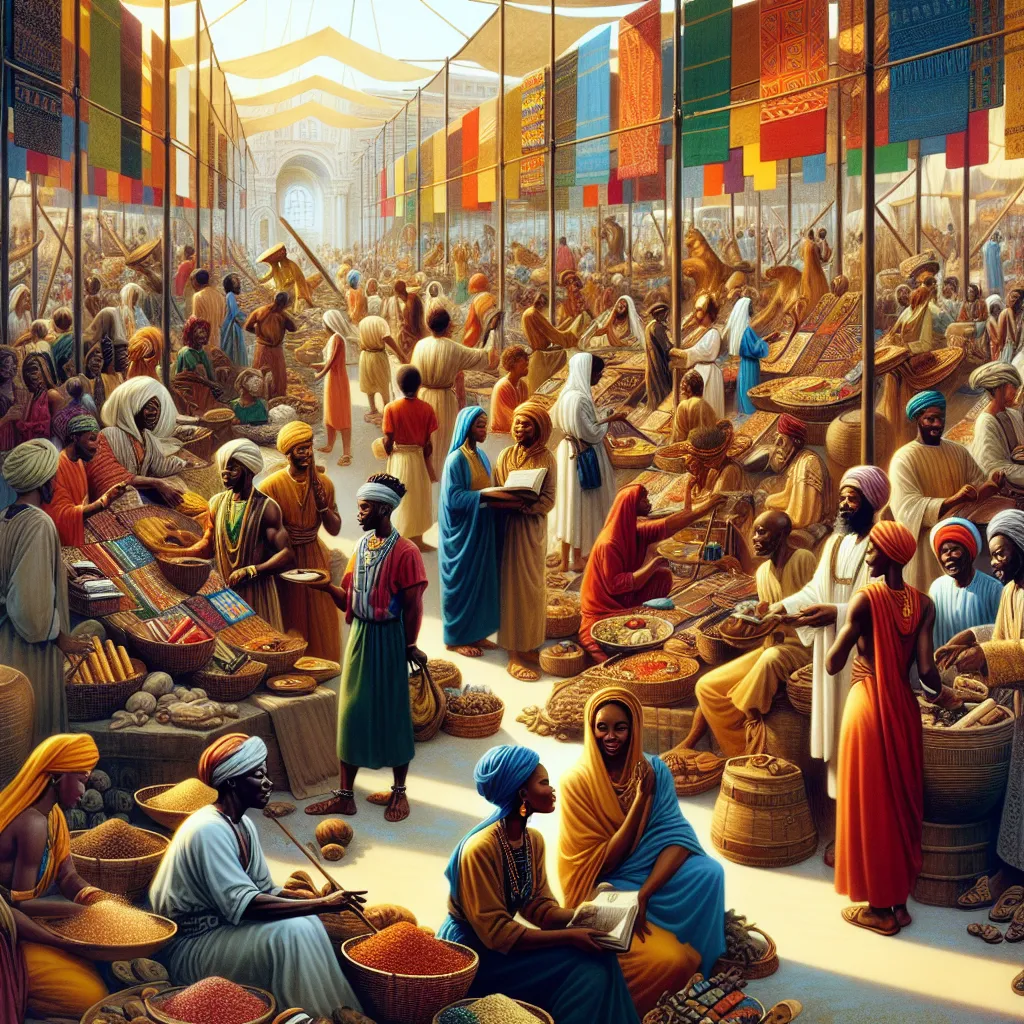
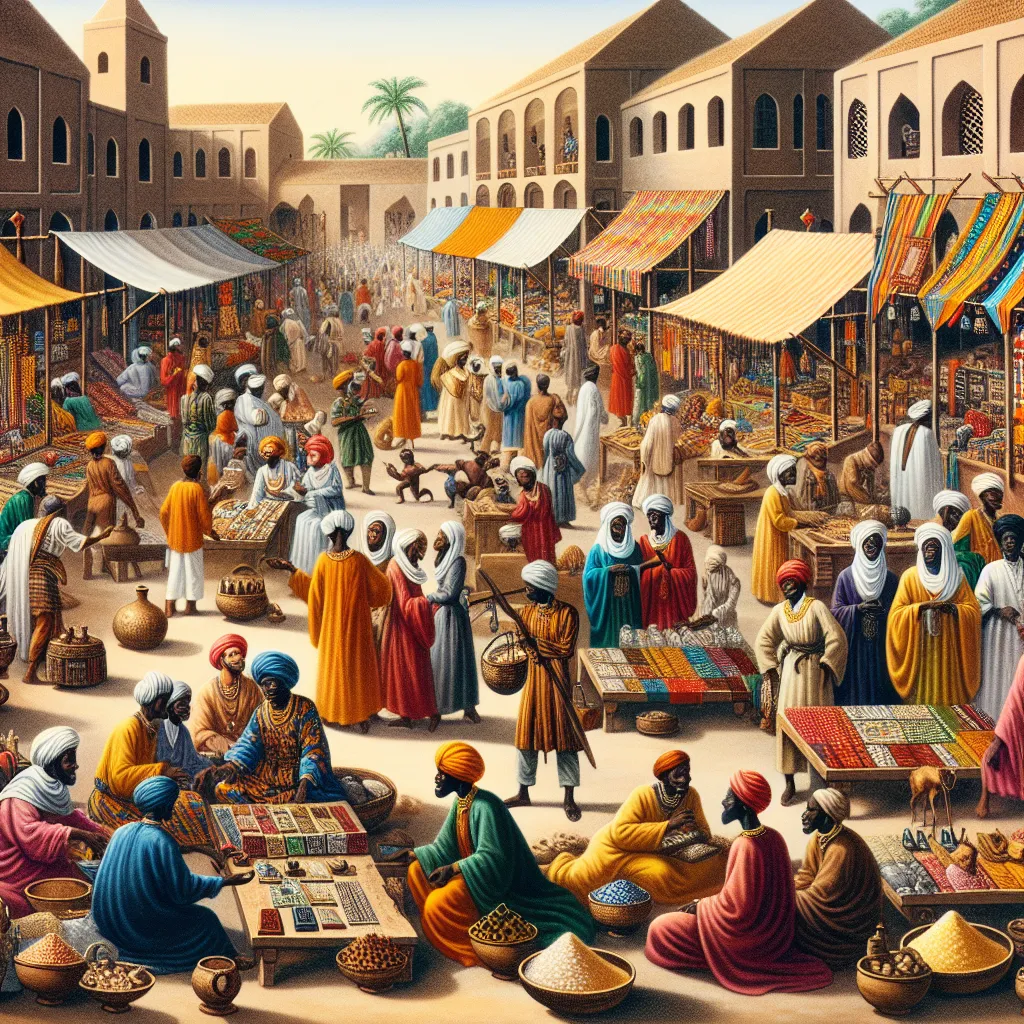
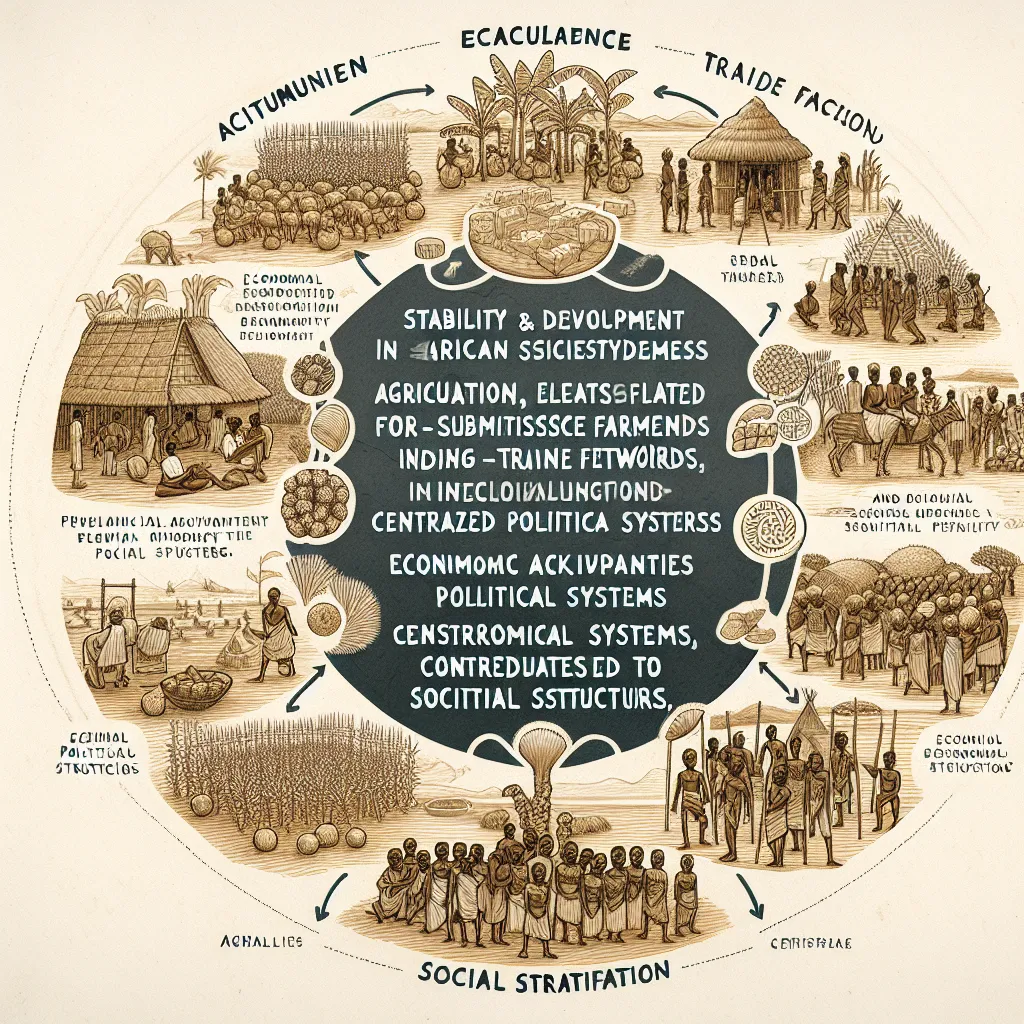
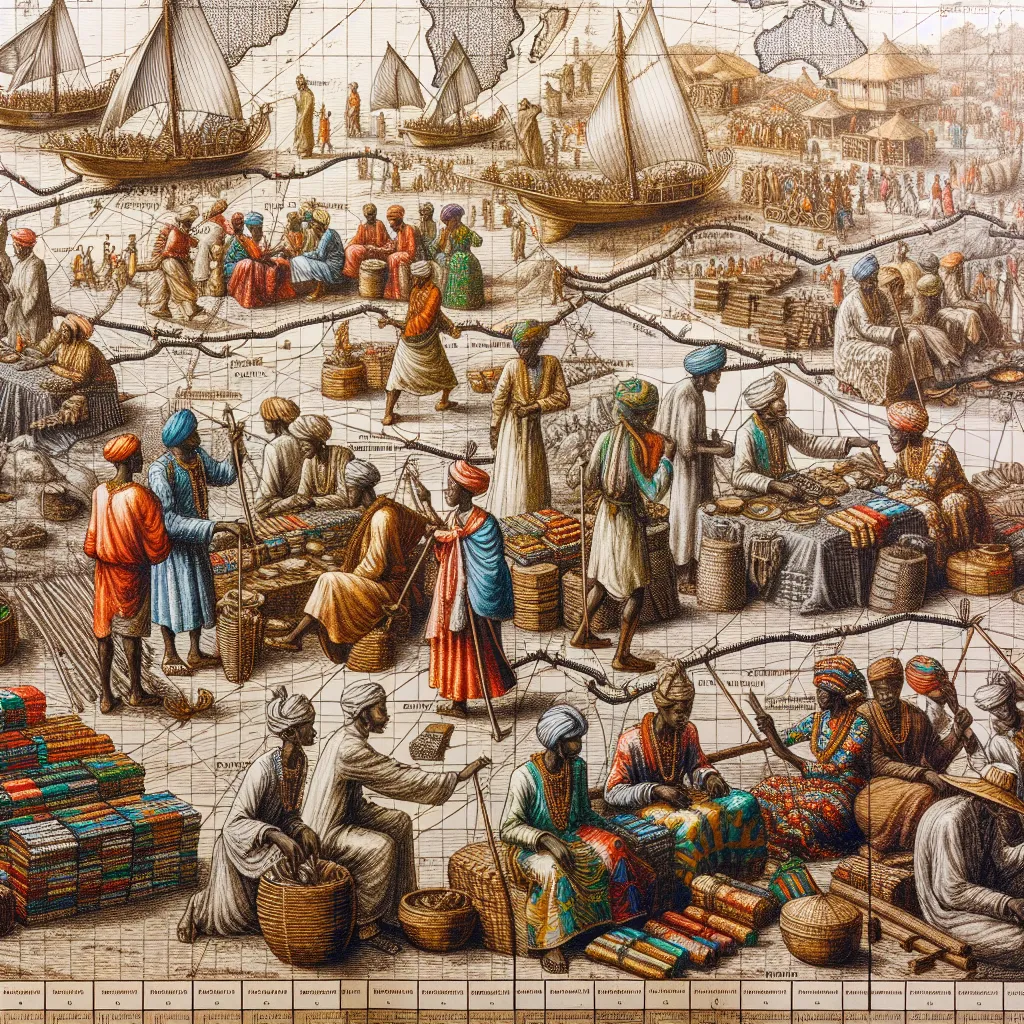


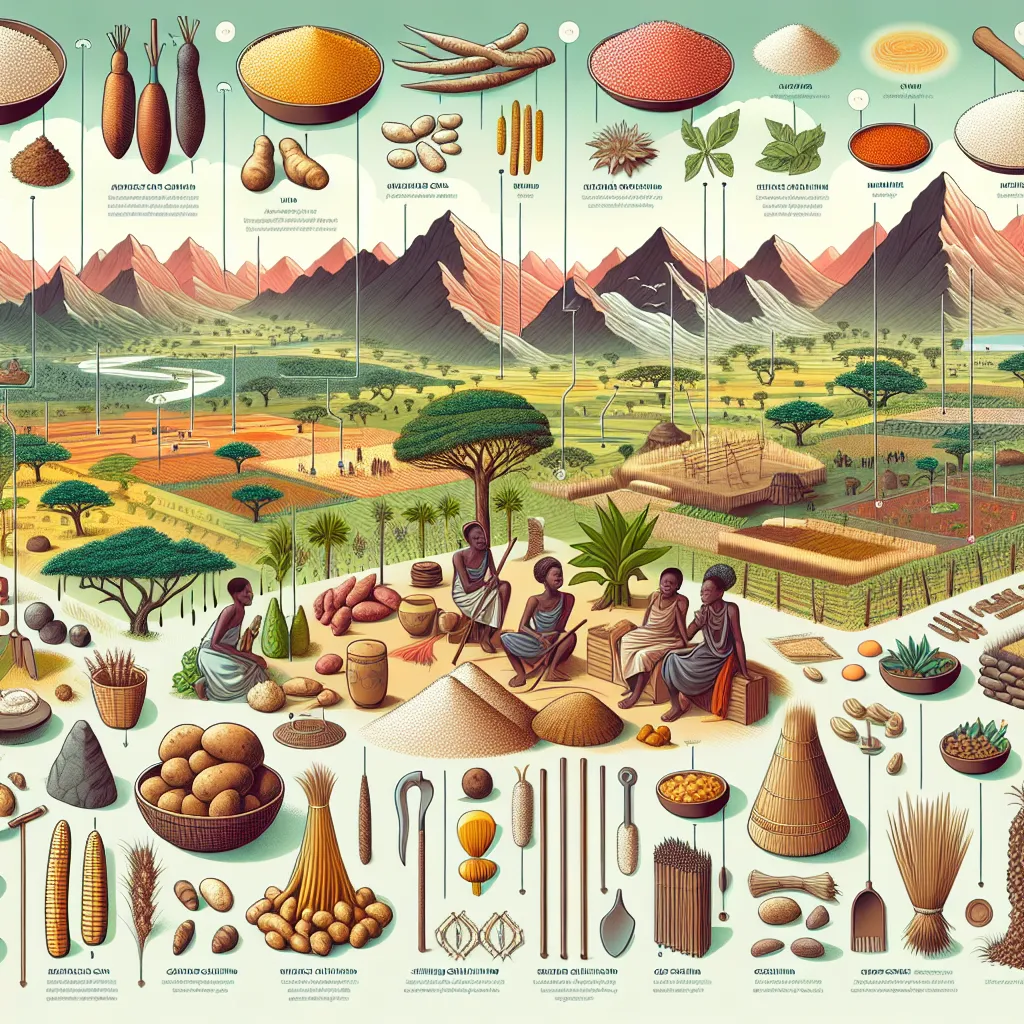
Post your own comment: